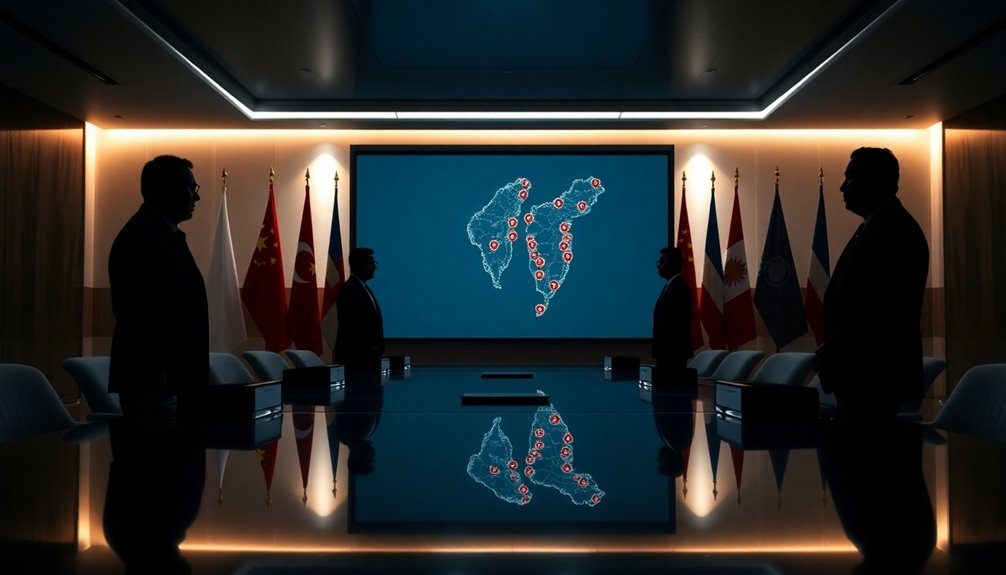
As tensions escalate in the Asia-Pacific region, China has accused four Taiwanese individuals linked to Taiwan’s military cyber force of orchestrating cyberattacks against its critical infrastructure. These individuals, connected to Taiwan’s Information, Communications, and Electronic Force Command (ICEFCOM), are alleged to have ties with notorious Advanced Persistent Threat (APT) groups, namely PoisonIvy and GreenSpot. China claims these groups have executed espionage and sabotage operations targeting its critical infrastructure, amplifying an already fraught situation.
Taiwan’s defense ministry promptly denied these allegations, asserting that its cyber units focus on defensive operations rather than offensive attacks. You might find it interesting that Taiwan has been on the receiving end of approximately 2.4 million cyberattacks daily from China. The tactics employed by Chinese hackers include phishing, APT operations, and increasingly sophisticated AI-driven tools aimed at infiltrating Taiwanese networks. They often target vital sectors like semiconductors and defense contractors, making this a significant concern for Taiwan’s national security. Taiwan’s National Security Bureau (NSB) reported that 2.4 million daily cyberattacks from China in 2024 illustrate the scale of the cyber threats faced by the nation.
While China points fingers, Taiwan emphasizes that these accusations serve as a smokescreen to obscure its own aggressive cyber activities. The situation reflects a broader context of ongoing cyber warfare where advanced groups like APT40 have long targeted Taiwanese organizations. Their methods involve malware, VPN exploits, and social engineering, contributing to a climate of distrust between the two nations. Recently, the frequency and complexity of these attacks have surged, creating a pressing need for Taiwan to bolster its cyber defenses.
You may also note that China’s cyber capabilities are evolving rapidly, integrating AI and stealth tactics that heighten the risk for Taiwan. The nation’s reliance on external IT service providers adds another layer of vulnerability, exposing critical infrastructures to Chinese hackers.
In this geopolitical struggle, cyber warfare has become an essential battlefield, impacting not just regional stability but also international relations. The implications of this escalating cyber conflict can extend far beyond Taiwan and China. Should these tensions continue to rise, they could draw in other nations, potentially broadening the scope of cyber warfare on a global scale.
As both sides ramp up their cyber efforts, you can expect the stakes to get higher, making it imperative to watch how this situation unfolds in the coming months and years.








